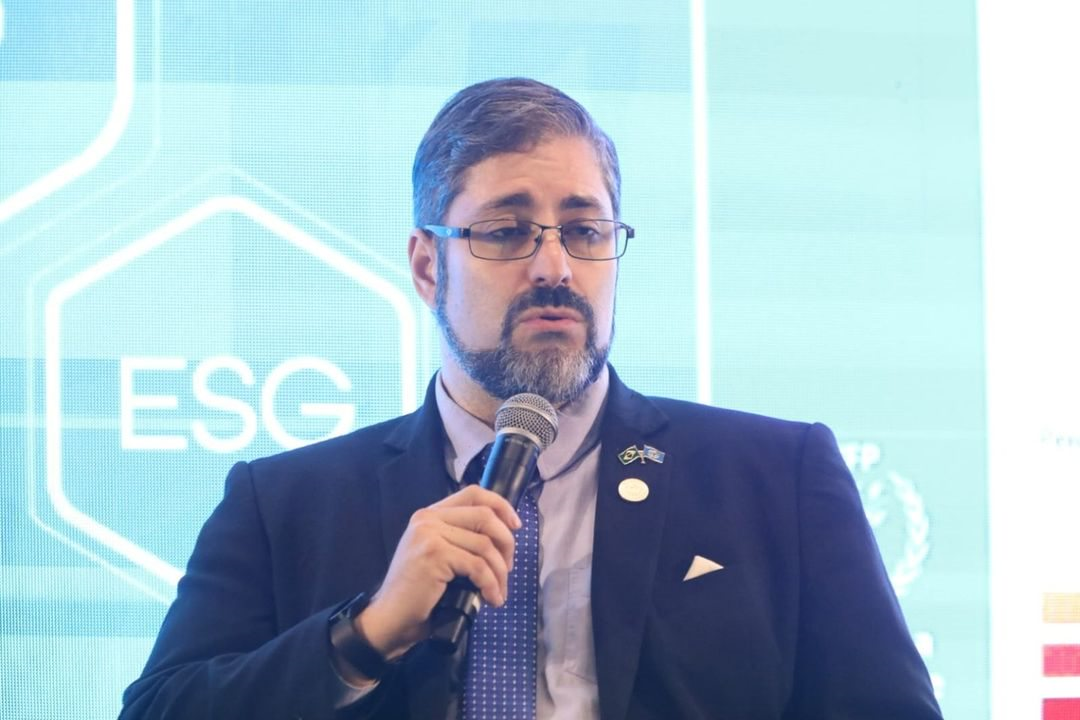
On Tuesday, June 13, Igor Carneiro, Partnerships Officer at the World Food Programme (WFP) Centre of Excellence against Hunger in Brazil, took part in the opening panel of the 3rd edition of the National Supply Chain Forum of the Brazilian Supermarkets Association (ABRAS) on ESG (Environment, Social and Governance). The event brought together authorities and leaders from the national supply chain to build solutions to the main strategic, market, institutional and regulatory challenges of the sector.
The opening table addressed the size and importance of the national supply chain for the Sustainable Development Goals (SDGs), especially SDG2, which aims to end hunger and promote sustainable agriculture. It also showcased results obtained since the first two editions of the Forum. In his speech, Igor Carneiro detailed the current context of world hunger, according to data from the State of Food Insecurity (SOFI) 2022 report. He then spoke about the link between ESG and the fight against hunger, stressing that this challenge will only be overcome with the strength of all sectors together.
“The fight against hunger is a complex task that involves a number of interconnected factors, such as public policies, access to resources, food production systems and equitable distribution,” said Igor Carneiro. “While ESG can have a positive impact on hunger reduction, a holistic, integrated approach to food systems is needed, involving governments, civil society organizations, the private sector and local communities to achieve meaningful results in this area”, he added.
In the second part of the event, Igor Carneiro also participated in a panel on the connection between waste and hunger and presented global data on hunger, waste and the connection to ESG. “Even though we have 828 million people in the world who don’t know when their next meal will be, we already produce enough food in the world to feed everyone, and with plenty to spare. It is not acceptable that in 2023 we still have more than a third of the food we produce being discarded or lost throughout the production and supply chain”, he said.




